Introduction
In the diverse world of medicinal mushrooms, Turkey Tail (Trametes versicolor) stands out as one of the most researched and potentially beneficial fungi for human health. With its distinctive fan-shaped appearance featuring concentric rings of varying colors that resemble a wild turkey's tail, this mushroom has earned not only its colorful name but also a respected place in both traditional medicine systems and modern scientific research.
For centuries, Turkey Tail mushrooms have been valued in Eastern medical traditions, particularly in Chinese medicine where they're known as Yun Zhi, and in Japanese medicine as Kawaratake. Indigenous cultures across various regions have similarly recognized this mushroom's healing potential. What makes Turkey Tail particularly fascinating is how modern scientific investigation has begun to validate many of these traditional uses, uncovering the mechanisms behind its impressive array of health benefits.
From supporting immune function and potentially complementing cancer treatments to improving gut health and providing powerful antioxidant protection, Turkey Tail mushrooms offer a remarkable spectrum of benefits backed by a growing body of research. In this comprehensive guide, we'll explore the science-based benefits of Turkey Tail mushrooms, examining the evidence behind their therapeutic effects, practical ways to incorporate them into your wellness routine, and important considerations for those interested in harnessing their potential. Whether you're navigating specific health challenges or simply looking to optimize your wellbeing through natural approaches, understanding Turkey Tail mushrooms' benefits provides valuable insights for your health journey.
Understanding Turkey Tail Mushrooms
What Are Turkey Tail Mushrooms?
Turkey Tail mushrooms (Trametes versicolor, formerly known as Coriolus versicolor) are polypore fungi that grow abundantly on dead and decaying hardwood logs, stumps, and branches throughout forests worldwide. Their name comes from their striking resemblance to the colorful, fan-shaped tail of a wild turkey, featuring concentric zones of varying colors—typically browns, tans, grays, blues, and creams arranged in bands.
These thin, leather-like fungi typically grow in overlapping clusters, creating beautiful patterns across fallen trees and stumps. Unlike many medicinal mushrooms that might be rare or difficult to cultivate, Turkey Tail mushrooms are remarkably common in temperate forests across North America, Europe, and Asia, contributing to their historical accessibility as a medicine.
In traditional Chinese medicine, where they've been used for more than 2,000 years, Turkey Tail mushrooms (called Yun Zhi) were brewed into teas and used to clear dampness, increase energy, strengthen the lungs and spleen, and promote longevity. Japanese medical traditions similarly valued this mushroom (called Kawaratake) for its health-supporting properties. Various indigenous cultures across North America also used Turkey Tail in their healing practices, recognizing its immune-supporting and invigorating effects.
Unlike many edible mushrooms, Turkey Tail has a tough, leathery texture that makes it unsuitable for direct culinary use as a main ingredient. Instead, it's typically prepared as teas, extracts, powders, or capsules to access its medicinal compounds.
Key Bioactive Compounds
The therapeutic potential of Turkey Tail mushrooms stems from their rich array of bioactive compounds:
-
Polysaccharopeptide (PSP): Discovered and extensively researched by Chinese scientists, this protein-bound polysaccharide has demonstrated remarkable immunomodulatory effects, enhancing various aspects of immune function while showing potential anti-tumor properties.
-
Polysaccharide-K (PSK): Also known as krestin, this compound has been the subject of significant research in Japan, where it's been used as a complementary treatment for cancer since the 1970s. PSK is an approved pharmaceutical grade medicine in Japan for this purpose.
-
Beta-glucans: These complex sugars are structural components of the mushroom's cell walls and are known for their potent immune-modulating properties, including the activation of macrophages, natural killer cells, and other components of immune defense.
-
Phenolic compounds: Turkey Tail contains various phenols and flavonoids with antioxidant properties, including quercetin and baicalein, which help combat oxidative stress and free radical damage.
-
Triterpenes: These compounds have demonstrated anti-inflammatory, hepatoprotective (liver-protecting), and potentially antiviral effects in various studies.
-
Prebiotics: Turkey Tail contains compounds that function as prebiotics, supporting the growth and activity of beneficial gut bacteria.
The synergistic action of these compounds contributes to Turkey Tail's wide-ranging health benefits, which we'll explore in detail throughout this article.

Immune System Benefits
Enhancing Immune Function
One of the most well-documented Turkey Tail mushrooms benefits is their ability to enhance and modulate immune function:
Activation of Immune Cells
Research has shown that the polysaccharides in Turkey Tail, particularly beta-glucans, can activate several types of immune cells:
-
Natural Killer (NK) cells: These specialized immune cells are vital for identifying and eliminating virus-infected and cancerous cells. Studies have demonstrated that Turkey Tail extracts can increase both the number and activity of NK cells.
-
Macrophages: These cells engulf pathogens and cellular debris as part of the immune response. Turkey Tail compounds have been shown to enhance macrophage activity and function.
-
T cells: The polysaccharides in Turkey Tail may stimulate various T cell types, which are crucial for cell-mediated immunity and coordinating immune responses.
-
Dendritic cells: A 2019 study published in the Journal of Immunology Research found that Turkey Tail extract significantly enhanced the activity of dendritic cells, which play a central role in initiating immune responses.
Balancing Immune Response
Beyond simple immune stimulation, Turkey Tail demonstrates immunomodulatory properties, meaning it can help balance immune function:
-
Cytokine regulation: Research suggests Turkey Tail compounds can help regulate cytokine production (signaling molecules that mediate immune responses), potentially helping to control inflammation and balance immune reactions.
-
Adaptogenic properties: Like many medicinal mushrooms, Turkey Tail displays adaptogenic properties, potentially helping the body adapt to various stressors and maintain homeostasis.
This balanced approach makes Turkey Tail particularly valuable, as it appears to help normalize immune function rather than simply stimulating it—potentially beneficial for both underactive immune systems and conditions involving excessive immune activation.
Supporting Winter Wellness
The immune-enhancing properties of Turkey Tail make it particularly valuable during seasonal challenges:
-
Respiratory support: Several studies suggest that the immunomodulatory effects of Turkey Tail may help support healthy respiratory function during seasonal challenges.
-
Recovery support: A 2014 study published in the Journal of the American College of Nutrition found that supplementation with mushroom blend including Turkey Tail helped reduce the incidence and duration of upper respiratory symptoms compared to placebo.
-
Prevention strategies: Many integrative health practitioners recommend Turkey Tail as part of a comprehensive approach to winter wellness, alongside vitamin D, zinc, and other immune-supporting nutrients.
While more research is needed for definitive conclusions, the existing evidence suggests that Turkey Tail may be a valuable addition to seasonal wellness protocols.
Cancer Support Research
Clinical Studies and Evidence
Some of the most extensive research on Turkey Tail involves its potential supportive role in cancer care:
PSK Research in Japan
In Japan, PSK (extracted from Turkey Tail) has been approved since the 1980s as an adjunct treatment for several types of cancer:
-
Integrated approach: PSK is commonly prescribed alongside conventional cancer treatments like surgery, chemotherapy, and radiation in Japan, and is covered by Japan's national health insurance for this purpose.
-
Clinical trials: Numerous clinical trials have examined PSK's effects, with a 2012 systematic review in the Cochrane Database of Systematic Reviews finding that Turkey Tail extracts, when used as adjuncts to conventional cancer treatments, were associated with improved survival rates in certain cancer types.
-
Specific cancer types: The most significant research has focused on gastric, colorectal, esophageal, and lung cancers, though studies have explored effects on other types as well.
PSP Research in China
PSP, another extract from Turkey Tail, has been extensively studied in China:
-
Immune support during treatment: Multiple studies have found that PSP may help maintain immune function during chemotherapy and radiation.
-
Quality of life improvements: Research suggests PSP may help reduce side effects of conventional cancer treatments and improve overall well-being during treatment.
-
Survival indicators: Some studies indicate PSP supplementation may be associated with improved survival markers when used alongside conventional treatments.
Emerging Western Research
Interest in Turkey Tail for cancer support is growing in Western medicine:
-
Breast cancer research: A small FDA-approved clinical trial at the University of Minnesota examined Turkey Tail's effects in women with breast cancer, finding it increased natural killer cell activity and other immune parameters.
-
Ongoing investigations: Several research institutions are currently investigating Turkey Tail extracts for various applications in supportive cancer care.
Mechanisms of Action
Research has identified several mechanisms through which Turkey Tail mushrooms may exert their effects in cancer support:
Immune System Activation
As discussed earlier, Turkey Tail stimulates various immune cells that play crucial roles in identifying and eliminating cancer cells:
-
NK cell enhancement: Natural Killer cells are particularly important for recognizing and destroying cancer cells, and Turkey Tail has been shown to increase both their number and activity.
-
T cell response: Turkey Tail compounds may enhance T cell responses, which are crucial for targeting specific cancer cells.
-
Cytokine modulation: By helping regulate cytokine production, Turkey Tail may help create a less favorable environment for cancer growth.
Direct Anti-Tumor Effects
Some research suggests Turkey Tail extracts may have more direct anti-cancer effects:
-
Apoptosis induction: Laboratory studies have found that certain compounds in Turkey Tail can induce apoptosis (programmed cell death) in various cancer cell lines.
-
Anti-angiogenesis effects: Some research indicates Turkey Tail compounds may help inhibit angiogenesis—the formation of new blood vessels that tumors need to grow.
-
Cell cycle regulation: Laboratory studies suggest Turkey Tail extracts may help regulate the cell cycle, potentially reducing uncontrolled cell division.
It's important to note that most of these direct anti-cancer effects have been observed in laboratory studies rather than human clinical trials, and Turkey Tail is not considered a primary cancer treatment. Its role appears to be most valuable as a complementary approach alongside conventional oncology treatments.
Digestive and Gut Health
Prebiotic Effects and Microbiome Support
One of the most exciting areas of recent Turkey Tail research involves its effects on gut health, particularly its prebiotic properties:
Supporting Beneficial Bacteria
Turkey Tail contains complex carbohydrates that function as prebiotics—non-digestible fibers that serve as food for beneficial gut bacteria:
-
A groundbreaking 2014 study published in the British Journal of Nutrition found that Turkey Tail extract significantly increased beneficial bacteria, including Bifidobacterium and Lactobacillus species, while reducing potentially harmful bacteria.
-
Research suggests that the prebiotic fibers in Turkey Tail may selectively nourish beneficial bacteria, helping to create a healthier gut microbial balance.
This prebiotic effect is particularly valuable given our growing understanding of the gut microbiome's central role in overall health and immunity.
Improving Microbiome Diversity
Beyond simply increasing certain bacterial species, Turkey Tail appears to support overall gut microbial diversity:
-
A 2017 study in Gut Microbes found that Turkey Tail supplementation increased microbial diversity in the gut, which is generally associated with better health outcomes.
-
Greater microbial diversity has been linked to reduced inflammation, improved metabolic health, and better immune function.
Digestive Comfort and Function
Turkey Tail may also offer more direct benefits for digestive function:
-
Anti-inflammatory effects: The mushroom's compounds may help reduce inflammation in the digestive tract, potentially alleviating discomfort.
-
Digestive enzyme support: Some preliminary research suggests certain compounds in Turkey Tail may support the body's production of digestive enzymes.
-
Gut barrier function: There's emerging evidence that Turkey Tail's polysaccharides may help support the integrity of the intestinal barrier, potentially helping to prevent "leaky gut" issues.
-
Liver support: Several studies suggest Turkey Tail may have hepatoprotective (liver-protecting) effects, which can indirectly support overall digestive health and detoxification processes.
While human studies specifically examining Turkey Tail's effects on digestive symptoms are still limited, anecdotal evidence and traditional use suggest it may be helpful for digestive comfort and function.
Antioxidant and Anti-Inflammatory Properties
Powerful Antioxidant Effects
Turkey Tail mushrooms are rich in various antioxidant compounds that help combat oxidative stress—a key factor in aging and many chronic diseases:
-
Phenolic compounds: Turkey Tail contains numerous phenols and flavonoids with potent antioxidant properties, helping to neutralize free radicals that can damage cells and tissues.
-
Cellular protection: The antioxidants in Turkey Tail may help protect cellular components, including DNA, from oxidative damage.
-
Synergistic effects: Research suggests the various antioxidant compounds in Turkey Tail work synergistically, potentially offering more comprehensive protection than isolated antioxidants.
A 2017 study in the Journal of Enzyme Inhibition and Medicinal Chemistry found that Turkey Tail extract exhibited significant antioxidant activity, comparable to some standard antioxidant compounds.
Inflammation Regulation
Chronic inflammation is increasingly recognized as a contributor to many health conditions. Turkey Tail's anti-inflammatory properties make it potentially valuable for supporting overall health:
-
Inflammatory pathway modulation: Compounds in Turkey Tail have been shown to influence various inflammatory pathways, potentially helping to reduce excessive inflammation.
-
Pro-inflammatory cytokine regulation: Research suggests Turkey Tail extracts can help modulate the production of pro-inflammatory cytokines, cell signaling proteins that can drive inflammation when overproduced.
-
Balanced response: Rather than completely suppressing inflammation (which is sometimes necessary for healing), Turkey Tail appears to help regulate inflammatory responses for a more balanced approach.
These anti-inflammatory effects may contribute to Turkey Tail's potential benefits for conditions ranging from digestive issues to joint discomfort and skin health.
Additional Health Benefits
Liver Support
Turkey Tail has traditionally been used to support liver health, and modern research is beginning to validate this application:
-
Hepatoprotective effects: Several studies suggest Turkey Tail extracts may help protect liver cells from various toxins and stressors.
-
Liver enzyme support: Research in animal models indicates Turkey Tail may help maintain healthy levels of liver enzymes during periods of stress.
-
Detoxification support: Preliminary research suggests Turkey Tail compounds may support the liver's natural detoxification processes.
A 2017 study published in the International Journal of Medicinal Mushrooms found that Turkey Tail extract protected liver cells from oxidative damage and helped maintain healthy liver function in an animal model of liver injury.
Respiratory Health
Beyond its immune-supporting effects, Turkey Tail may offer specific benefits for respiratory health:
-
Respiratory microbiome support: Emerging research suggests that Turkey Tail may help support a healthy respiratory microbiome, potentially contributing to better respiratory function.
-
Inflammatory modulation: The anti-inflammatory compounds in Turkey Tail may help balance inflammatory responses in the respiratory tract.
-
Antioxidant protection: The lungs are particularly vulnerable to oxidative stress due to their constant exposure to oxygen, and Turkey Tail's antioxidants may offer protection.
While research specifically examining Turkey Tail's effects on respiratory conditions is still developing, its immune-modulating and anti-inflammatory properties make it a promising area for future study.
Antimicrobial Potential
Research suggests Turkey Tail may have natural antimicrobial properties:
-
Antibacterial effects: Laboratory studies have demonstrated activity against certain bacteria, including some antibiotic-resistant strains.
-
Antiviral properties: Some research indicates Turkey Tail extracts may have activity against certain viruses, though human clinical studies are limited.
-
Balanced approach: Unlike conventional antimicrobials that may disrupt beneficial microbes, Turkey Tail appears to have a more selective effect that may preserve beneficial organisms.
These antimicrobial properties may contribute to Turkey Tail's traditional use for supporting recovery from various infections.
How to Use Turkey Tail Mushrooms
Forms and Preparations
Turkey Tail mushrooms are available in several forms, each with its own advantages:
Powders and Capsules
These are among the most convenient forms:
- Capsules: Offer precise dosing and avoid the mushroom's naturally bitter taste
- Powders: Can be added to smoothies, coffee, tea, or other foods
- Typical dosages: 1-3 grams daily for general wellness; higher dosages may be used under healthcare provider guidance
Extracts and Tinctures
Liquid forms offer different advantages:
- Hot water extracts: Focus on water-soluble compounds like polysaccharides
- Alcohol extracts: Extract different compounds, including triterpenes
- Dual extracts: Combine both extraction methods for a more complete spectrum of compounds
- Typical dosages: Follow product-specific recommendations, usually 1-3 dropperfuls (1-3 mL) 1-3 times daily
Teas and Broths
Traditional preparation methods include:
- Simple tea: Simmering dried Turkey Tail pieces in water for 20-30 minutes
- Medicinal broth: Adding Turkey Tail to bone broth or vegetable stock for longer extraction
- Dosage: 1-2 cups daily is common for general wellness support
Recommended Dosages
Dosage recommendations vary based on the specific product, extraction method, and health goals:
For General Wellness
- Powder/capsules: 500-1000 mg, 1-3 times daily
- Extracts: 30-60 drops (1-2 mL), 1-3 times daily
- Tea: 1-2 cups daily
For Specific Health Support
Higher dosages may be appropriate in certain circumstances:
- Immune challenges: Some practitioners recommend increasing to 2-3 grams of powder or extract daily during periods of immune stress
- Therapeutic applications: In some clinical studies, dosages equivalent to 3-6 grams of dried mushroom have been used for specific health concerns
Important Considerations
- Start low and go slow: Begin with lower dosages and gradually increase
- Consistency is key: Regular, daily use typically provides better results than occasional high doses
- Professional guidance: For specific health concerns, consult with a healthcare provider knowledgeable about medicinal mushrooms
Quality Considerations
The effectiveness of Turkey Tail supplements depends greatly on product quality:
What to Look For
To ensure you're getting a high-quality product:
- Fruiting body vs. mycelium: Products made from the actual mushroom fruiting bodies generally contain higher concentrations of beneficial compounds compared to mycelium-on-grain products
- Extraction method: Look for information about the extraction process; dual extraction (both water and alcohol) provides a fuller spectrum of compounds
- Beta-glucan content: Some quality products will specify beta-glucan content, which is more meaningful than general "polysaccharide" claims
- Testing: Reputable companies conduct third-party testing for purity and potency
- Organic certification: Helps ensure the mushrooms are free from pesticides and heavy metals
Red Flags
Be cautious of products that:
- Don't specify which part of the mushroom is used
- Make exaggerated health claims
- Fail to provide information about sourcing or testing
- Use proprietary blends that don't disclose amounts of individual ingredients

Safety and Potential Side Effects
General Safety Profile
Turkey Tail mushrooms have an excellent safety record with few reported adverse effects:
- Long history of use: Their traditional use spanning centuries across multiple cultures suggests general safety.
- Research safety: Clinical studies have generally found Turkey Tail to be well-tolerated.
- FDA status: In the United States, Turkey Tail is considered a dietary supplement rather than a drug, though specific extracts are used as pharmaceutical agents in other countries like Japan.
Possible Side Effects
While generally safe, some individuals may experience:
- Digestive discomfort: Mild gastrointestinal effects like bloating or gas, particularly when first starting supplementation
- Taste and sensory issues: Tea and liquid extracts have a bitter taste that some find unpleasant
- Allergic reactions: Though rare, allergic responses to mushrooms are possible
Precautions and Contraindications
Certain individuals should exercise caution with Turkey Tail:
Medical Conditions
Consult a healthcare provider before using Turkey Tail if you have:
- Mushroom allergies: Obvious contraindication
- Autoimmune conditions: Due to immune-modulating effects, those with autoimmune disorders should use under medical supervision
- Bleeding disorders: Some mushrooms may have mild blood-thinning effects
Medication Interactions
Potential interactions include:
- Immunosuppressants: Theoretical interaction due to immune-stimulating properties
- Anticoagulants: Possible additive effect with blood-thinning medications
- Diabetes medications: May potentially enhance the effects of blood sugar-lowering drugs
Special Populations
- Pregnancy and breastfeeding: Insufficient safety data exists; generally recommended to avoid or use only under healthcare provider guidance
- Children: Limited research in pediatric populations; consult with a pediatric healthcare provider
- Pre-surgical: Generally advised to discontinue use at least two weeks before scheduled surgery due to potential mild blood-thinning effects
Frequently Asked Questions
How Long Does It Take to See Benefits from Turkey Tail?
The timeframe for experiencing benefits from Turkey Tail mushrooms varies based on several factors:
- General immune support: Some people report feeling more resilient within 2-4 weeks of consistent use
- Gut health improvements: Changes in digestive comfort and function may become noticeable within 2-8 weeks
- Deeper immunological changes: Some of the more profound immune-modulating effects may take 2-3 months of consistent use to fully manifest
- Individual variation: Response time varies significantly between individuals based on factors like baseline health status, dosage, product quality, and individual biochemistry
Consistency is key—Turkey Tail works best when taken regularly over time rather than occasionally or sporadically.
Can Turkey Tail Be Taken Daily Long-Term?
Turkey Tail appears safe for long-term daily use for most individuals:
- Traditional use: In traditional medicine systems, Turkey Tail has been used for extended periods without reported issues
- Modern research: Studies using Turkey Tail extracts for periods of 1-3+ years have generally found it to be well-tolerated
- Cycling option: Some herbalists and mycologists recommend occasional breaks (such as 5 days on, 2 days off, or 3 months on, 1 month off) when using any supplement long-term, though there's limited evidence that this is necessary with Turkey Tail
For most healthy individuals, daily use appears safe, though consulting with a healthcare provider about long-term use is always prudent.
Is Turkey Tail Safe to Take with Other Medicinal Mushrooms?
Turkey Tail combines well with other medicinal mushrooms, and such combinations are common in both traditional practice and modern formulations:
- Complementary effects: Different medicinal mushrooms often have complementary properties—for example, combining Turkey Tail's immune-modulating effects with Reishi's stress-reducing properties or Lion's Mane's cognitive benefits
- Synergistic potential: Some research suggests combinations of medicinal mushrooms may offer synergistic benefits beyond what each provides individually
- Common combinations: Turkey Tail is frequently combined with Reishi, Shiitake, Maitake, and Chaga in immune-supporting formulas
When combining multiple mushrooms, starting with lower doses of each and gradually increasing is a prudent approach to ensure tolerance.
What's the Difference Between Turkey Tail and Reishi?
Though both are medicinal mushrooms with immune-supporting properties, Turkey Tail and Reishi differ in several important ways:
Growth Patterns and Appearance
- Turkey Tail: Grows on dead or dying trees as thin, flexible brackets with distinctive concentric color zones resembling a turkey's tail
- Reishi: Grows primarily on hardwood trees, particularly hemlock, as a shelf-like structure with a distinctive glossy, reddish-brown cap and white edge
Key Compounds and Properties
- Turkey Tail: Particularly rich in PSP and PSK (protein-bound polysaccharides) with significant research on immune modulation and cancer support
- Reishi: Contains triterpenes called ganoderic acids not found in Turkey Tail, and has more notable adaptogenic, stress-reducing properties
Traditional and Modern Uses
- Turkey Tail: Historically used specifically for immune strength, vitality, and longevity; modern research focuses heavily on immune function and cancer support
- Reishi: Traditionally known as the "mushroom of immortality" with broader applications for stress, sleep, and spiritual practices; modern research emphasizes both immune and nervous system effects
Both mushrooms have valuable but somewhat different properties, and many people choose to use both as part of a comprehensive approach to health.
Conclusion
Turkey Tail mushrooms stand as one of nature's most impressive immunological allies, with a remarkable combination of traditional wisdom and modern scientific validation. From their powerful immune-modulating polysaccharides to their gut-supporting prebiotic effects and potential role in cancer support, these humble forest mushrooms offer a wide spectrum of benefits for human health and wellbeing.
What makes Turkey Tail particularly valuable in today's health landscape is its holistic approach to supporting the body's natural functions—not by overriding or suppressing systems, but by providing compounds that help optimize and balance our innate physiological processes. This aligns perfectly with growing interest in natural approaches that work with the body rather than against it.
As research continues to unveil more about Turkey Tail's mechanisms and applications, we're likely to gain even deeper appreciation for this mushroom that traditional healers have revered for centuries. Whether you're seeking everyday immune support, recovering from illness, or looking to optimize your long-term health, Turkey Tail offers scientifically-backed benefits worth considering as part of your wellness approach.
When selecting Turkey Tail products, quality matters significantly—look for reputable sources that prioritize fruiting body extracts, transparent testing, and clear information about sourcing and processing. As with any natural supplement, consistency in use typically yields the best results, allowing the body time to respond to Turkey Tail's beneficial compounds.
While not a replacement for a healthy lifestyle or appropriate medical care, Turkey Tail represents a powerful example of how traditional botanical wisdom and modern scientific understanding can converge to offer natural solutions for some of our most pressing health challenges. Its long history of safe use, combined with growing research support, makes it one of the most promising natural health supplements available today.



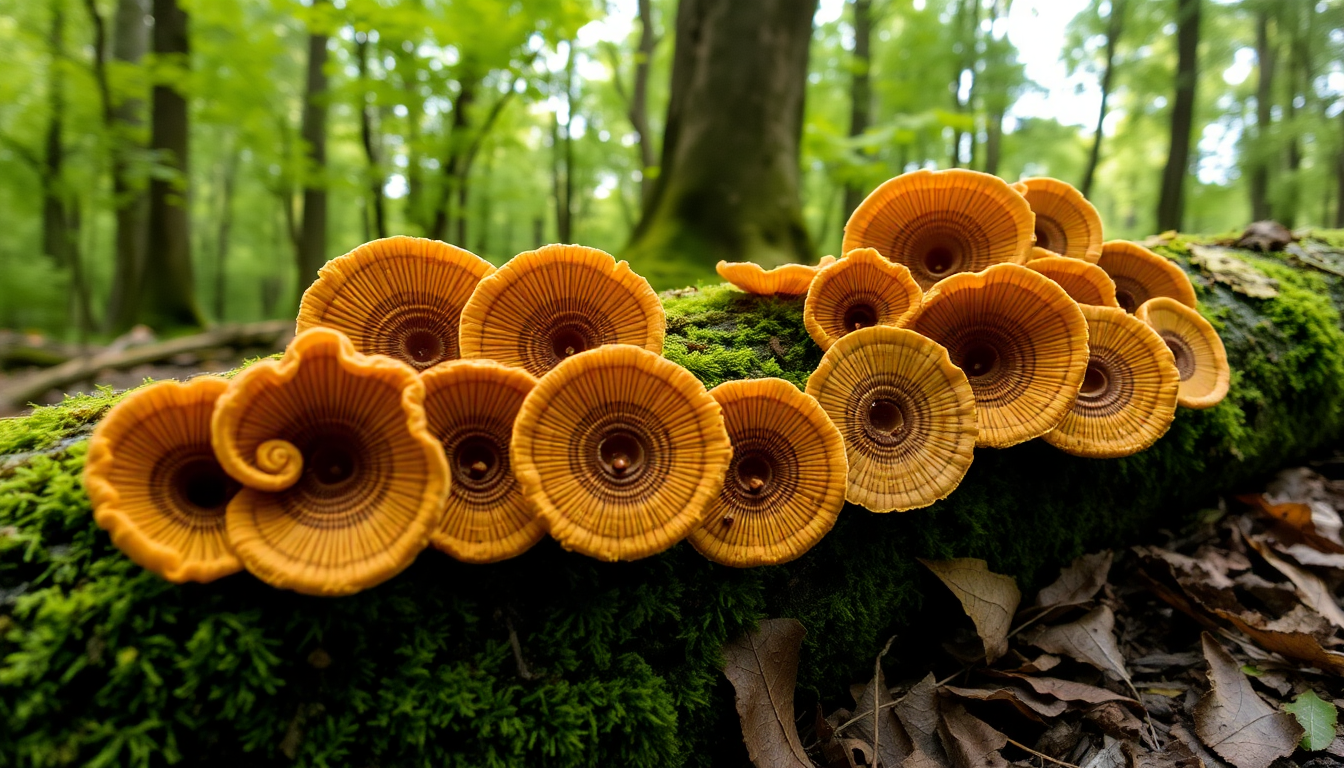

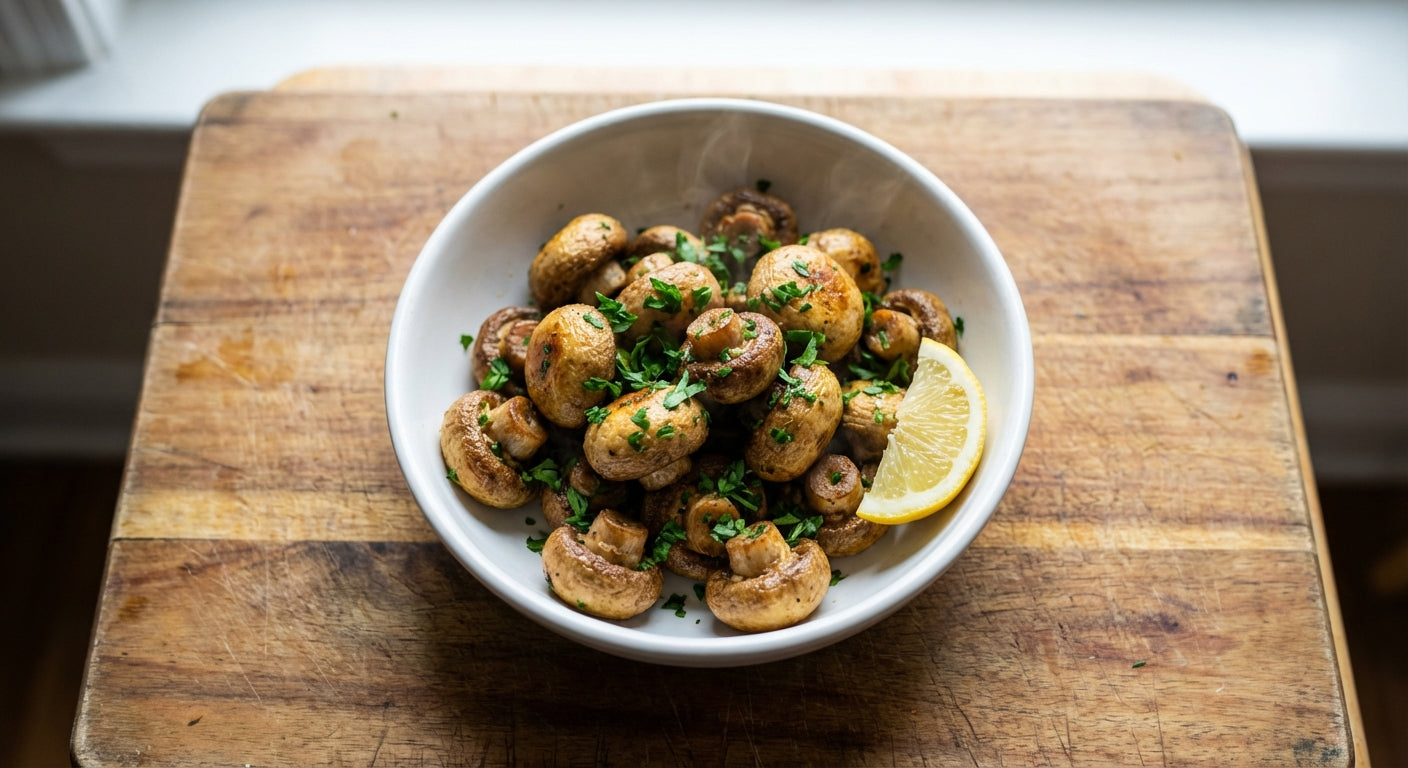


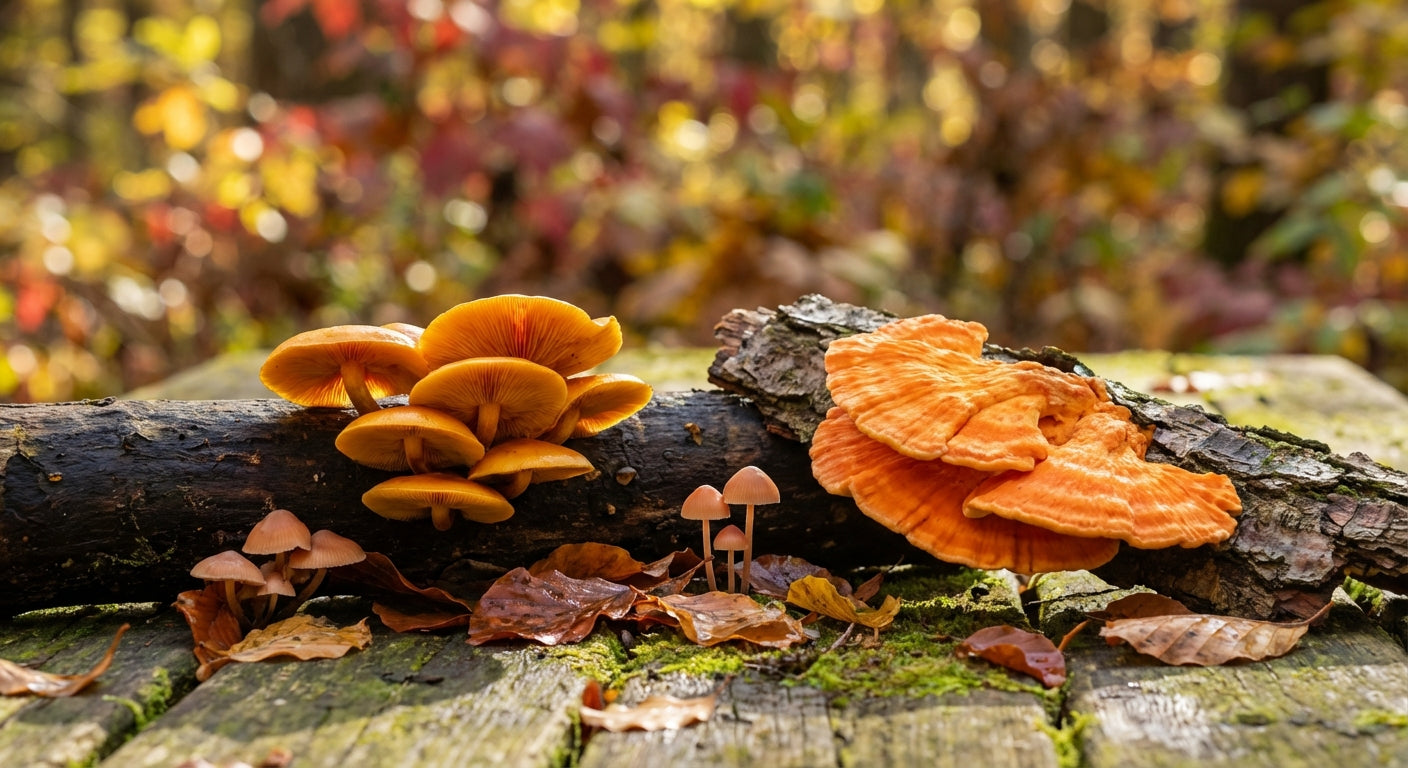
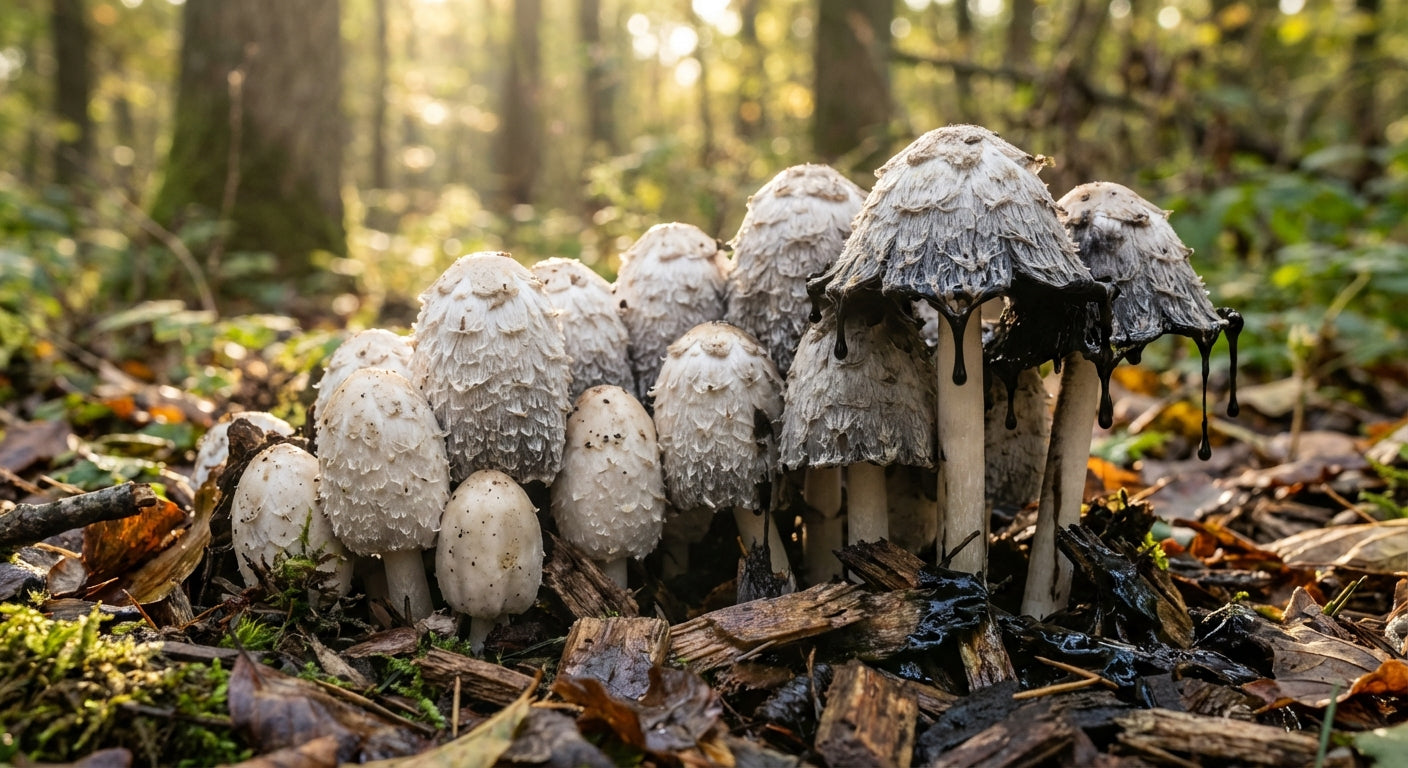
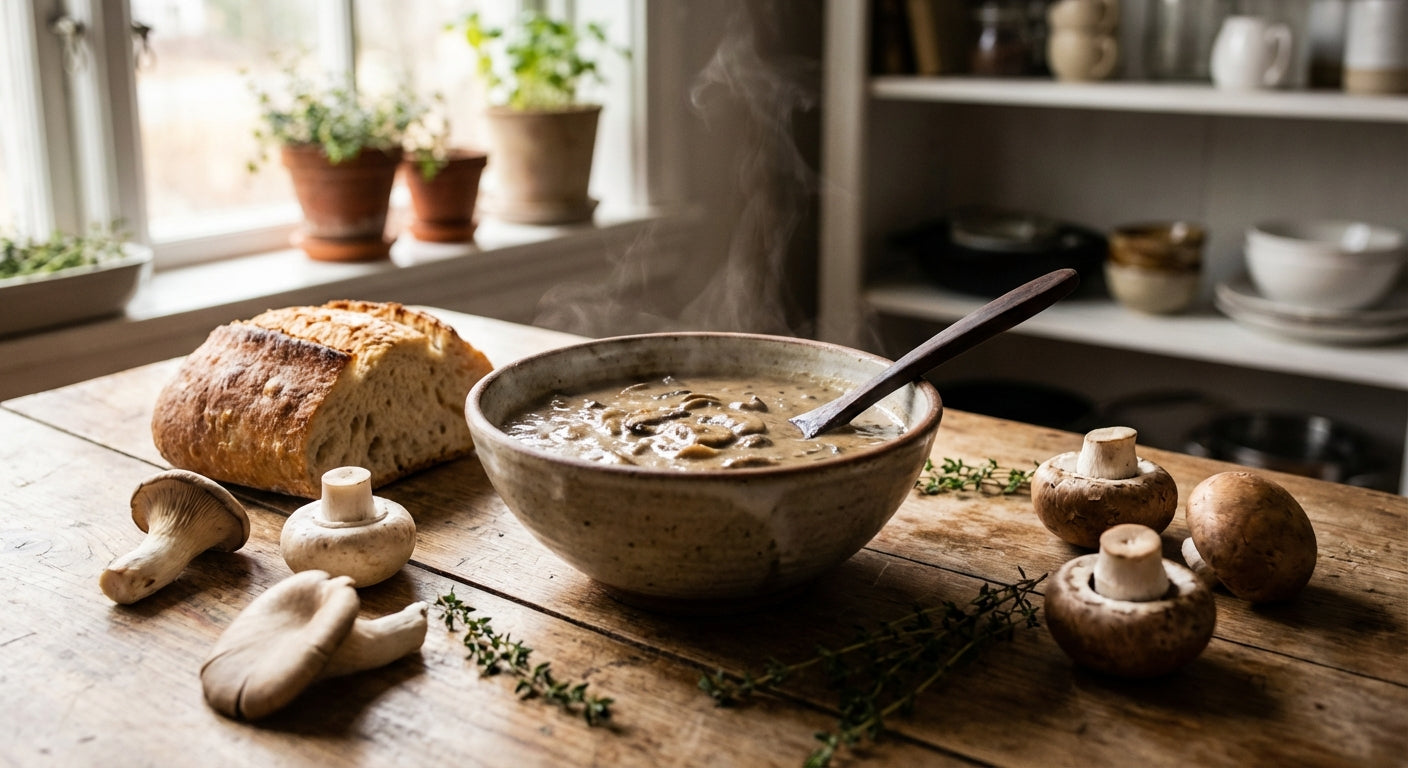
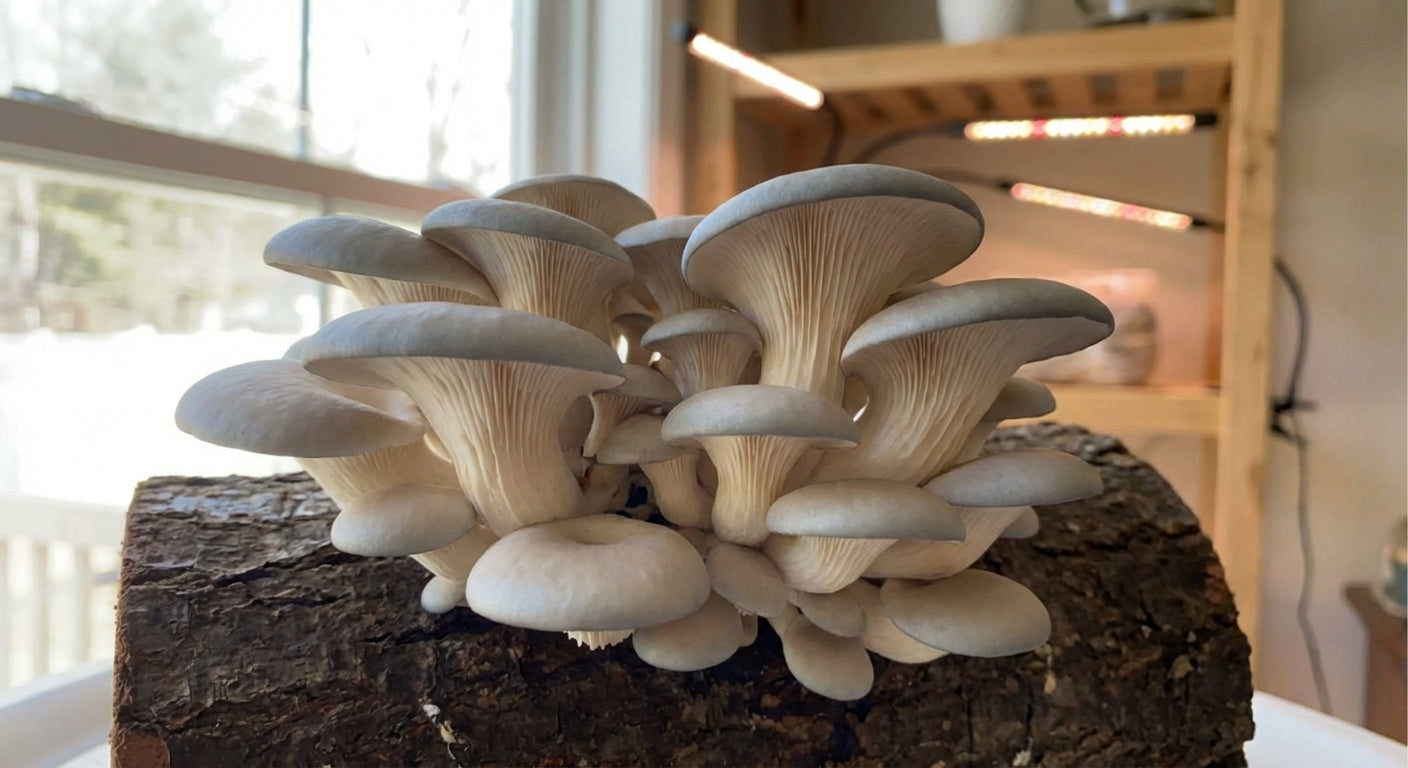
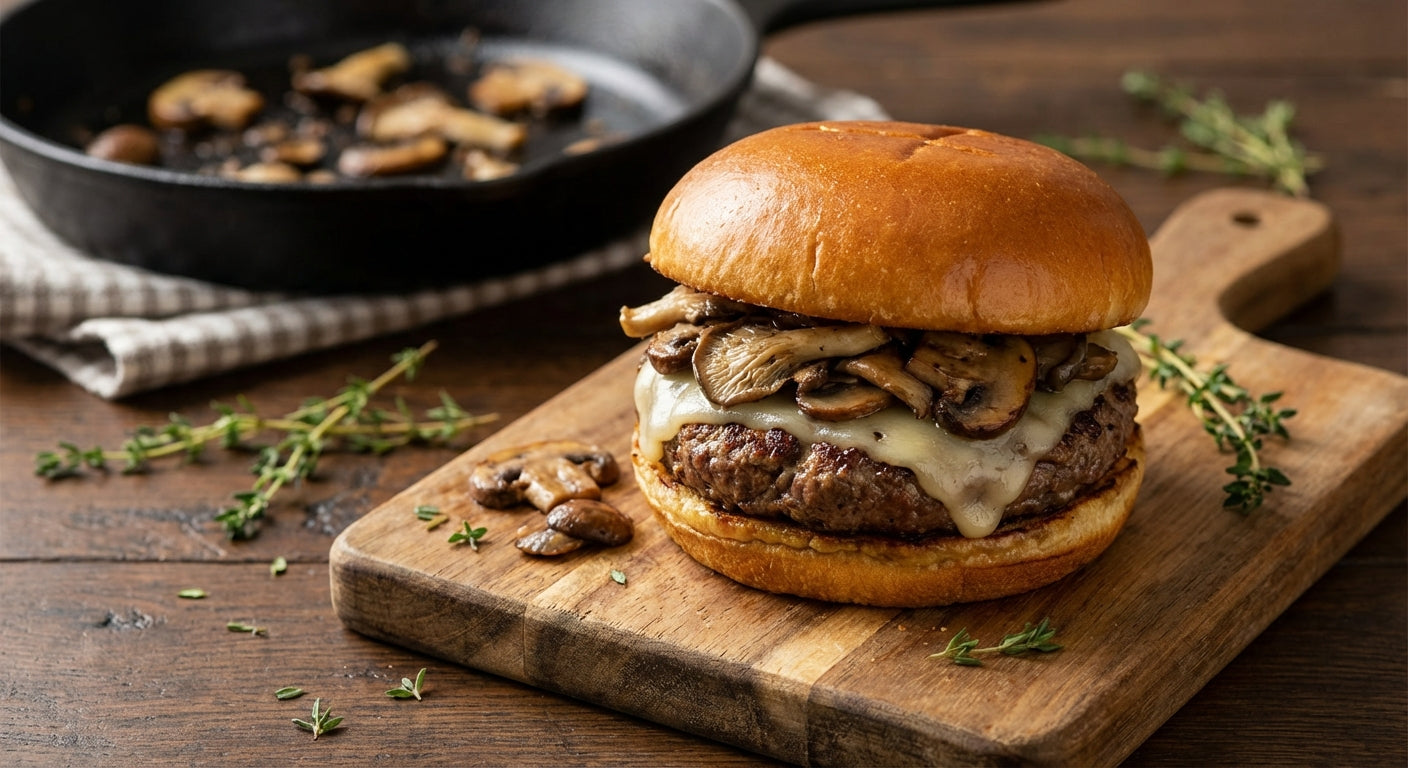



Share:
Cordyceps Mushroom Benefits: Unlocking the Power of Nature’s Potential
Turkey Tail Mushroom Benefits for Skin Revealed